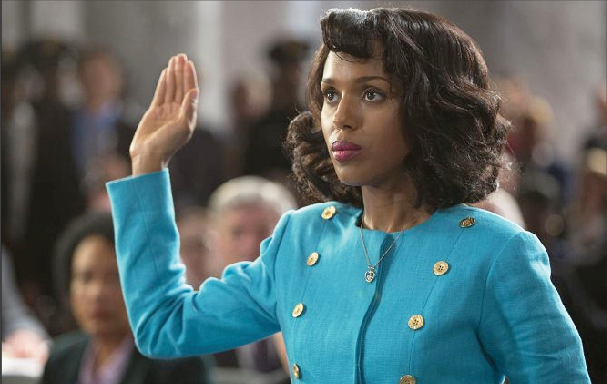Commentary: Confirmation is more than a history lesson
April 20, 2016
HBO delivered a striking depiction toward women with its powerful film, “Confirmation,” about University of Oklahoma law professor, Anita Hill and her former employer at the Department of Education and Equal Opportunity Commission, Clarence Thomas. Hill was swept up into a national firestorm about gender and race back in 1991 after she was contacted by the FBI and asked of her affiliation with the then Supreme Court nominee.
She detailed to the FBI the sexual harassment that she faced while working under Thomas at the department that handles issues of and related to sexual harassment. Although she asked that her statements remain private, they were leaked to the press, leading to a drawn out nationally televised spectacle that had members of the nation captivated and horrified.
“Scandal” actress Kerry Washington, who also served as the executive producer for the film, played Hill with incredible poise and reticence. Hill faced heavy scrutiny from the all-white male Senate Judiciary Committee, whose chairman was current United States Vice President, Joe Biden. In her testimony, she detailed her terrifying ordeal with Thomas that occurred ten years prior; recounting Thomas’ graphic discussions of pornography and innuendos toward everyday items, particularly a rather gruesome remark about a Coke can.
What Washington and HBO really nailed with this drama was its message. While the case took place over two decades ago, its meaning is not outdated. Women are still subjected to harassment, and while it is not physical attack, it is still an incredibly harmful one because of its demeaning nature.
Hill’s allegations were not taken seriously by the Republicans of the Committee during the live CNN broadcast. Who could she go to for help? Her boss was the person who handled those cases. The Republicans of the Committee berated her with foolish banter on live television, attempting to write her off so they could protect their nominee, Thomas.
Thomas attempted to protect himself, most prominently by referring to the accusations as “high-tech lynching for uppity blacks.” The statement grabbed the attention of both the Senate and the nation, as well as Hill herself was also African-American.
The Judiciary Committee, which included Republicans Orrin Hatch, Alan Simpson and Arlen Specter did not understand the seriousness of what Hill recounted. Through her actions to defend herself, Hill received national praise from women who were afraid to come forward with their own stories because they feared they would not be believed or taken seriously.
After Thomas was elected to the Supreme Court, numerous women ran for political office and won seats in their local constituencies or within the Senate.
Women began to be believed and more came forward with their stories. It is because of Hill’s bravery that laws against harassment were created. HBO delivered this message of courage and perseverance at an appropriate time, as women are still harassed and not believed when they speak up.








